Gaming laptop vs desktop: which setup should you choose?
Everything you need to consider when deciding between a gaming laptop and desktop
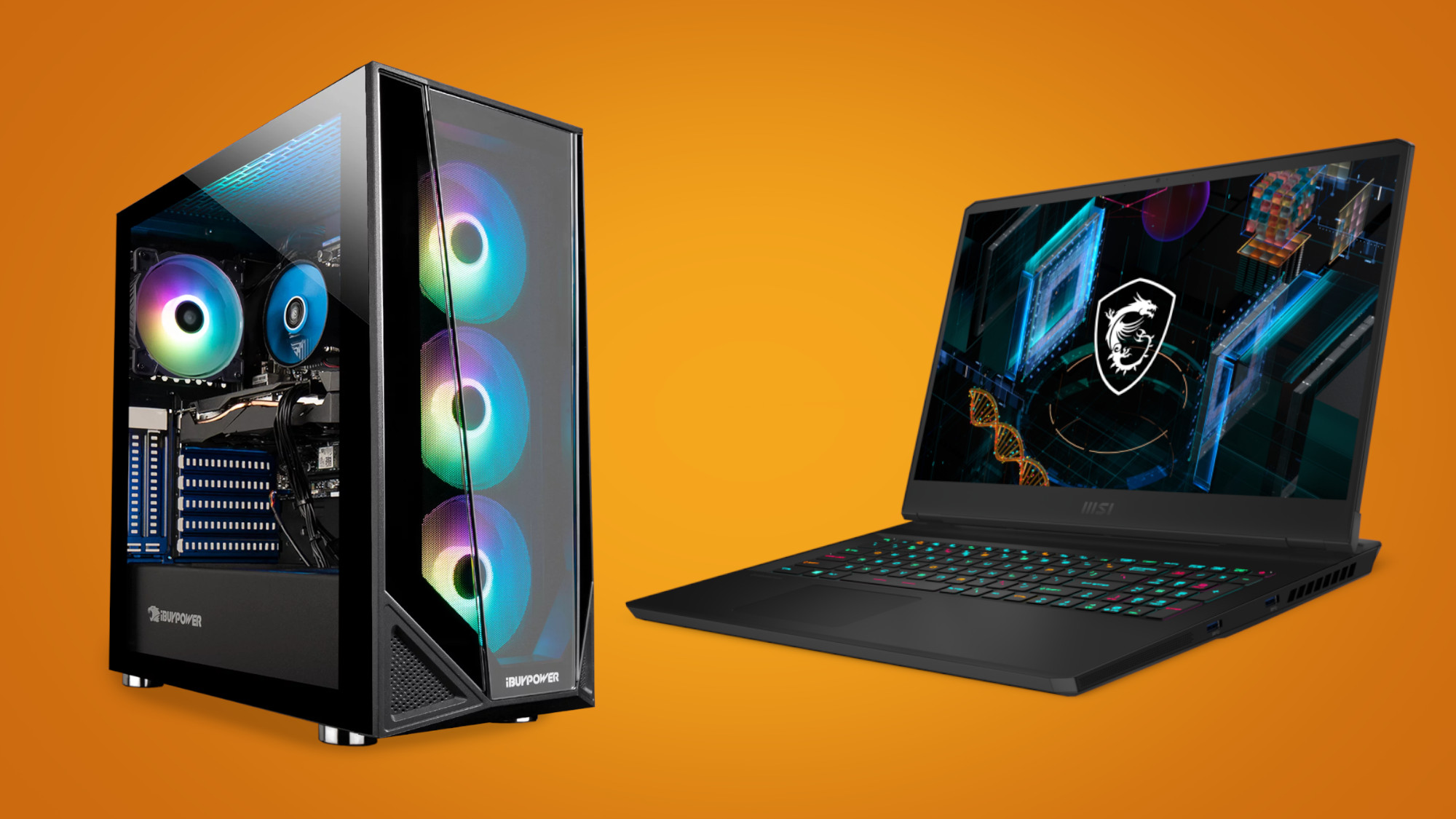
If you've decided to invest in a gaming system, your first major choice comes down to the age-old gaming laptop vs desktop debate. The best gaming laptops are proving serious competition for even the best gaming PCs these days, so whereas previous generations offered a clear-cut decision, today's market is a little more blurred.
Ultimately, the gaming laptop vs desktop judgement comes down to how you will use your machine - after all, if you know you need to take your system on the go, your choice is already made. However, diving a little deeper into the performance, upgradeability, and value for money in these systems can prove enlightening for those who don't have such an easy decision on their hands.
That's why we're rounding up all the differences between gaming laptops and gaming desktops here, as well as who should invest in each one. We've evaluated the current selection based on prices, availability of components, the performance under the hood, and the level of customization on offer, so that you can make the right call for your setup.
Gaming laptops vs desktops at a glance
Gaming laptop
- Portable
- No extra purchases necessary
- Can stand in for a work machine
Gaming desktop
- More powerful components
- Upgradeable
- Cheaper
Price
Pre-built gaming desktops are generally cheaper than gaming laptops, by virtue of the fact that you're not spending money on battery power, display performance, and that portable form factor. From a direct power comparison, then, a gaming desktop will work out at better value for money.
However, you will need to factor in additional costs for a gaming monitor, mouse, and gaming keyboard. While many gaming laptop owners do invest in these accessories, they're not required straight out of the box (though a gaming mouse is a must-have, as there's no playing on a trackpad after all). This means that a $1,500 gaming desktop could end up running closer to $2,000 once all your audio-visual gear is in place - something you don't need to factor into a laptop purchase straight away.
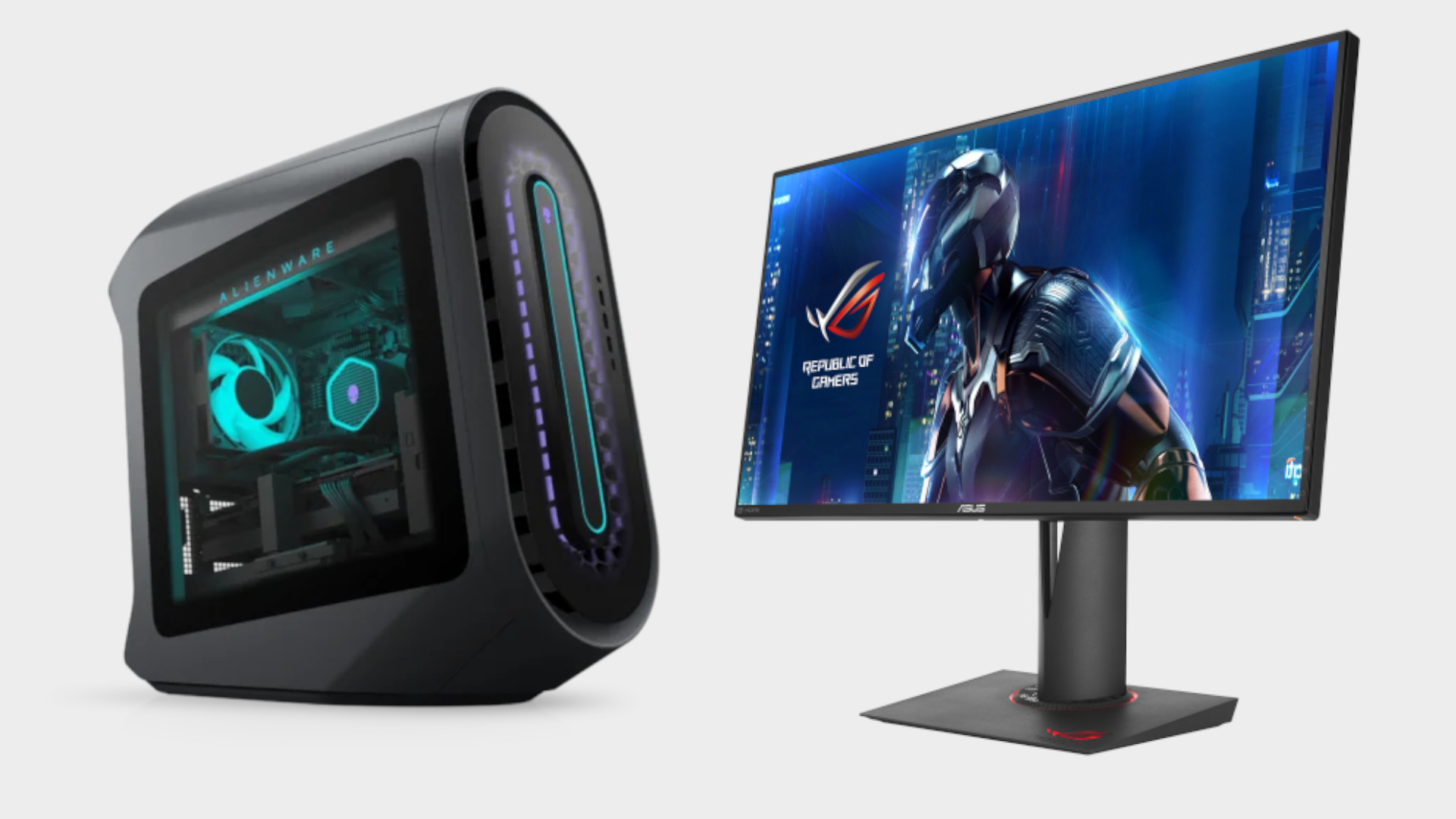
Similarly, building your own PC is going to come with its own cost challenges. The last few years have taught us that upgraders are at the mercy of the market when it comes to components. GPU prices have spiked considerably in the last two years, and that's when stock is even available. The overall cost of your build can far exceed the value packed into your components here, which means that key upgrade you've been saving for may be out of reach quickly.
It's also worth noting that the portability of a gaming laptop can factor heavily into the price. These machines aren't limited to the home, which means they can also easily double up as on-the-go work machines, potentially cutting an extra cost from the equation if you're on the hunt for an all-in-one machine.
Weekly digests, tales from the communities you love, and more
Overall, then, a pre-built gaming PC will likely offer up the best bang for buck price, a gaming laptop will offer solid value thanks to its all-in-one, flexible design, and a DIY PC will likely require considerable work to be cost-efficient. Once you take cheap gaming laptop deals and gaming PC deals into account, those savings can multiply as well.
- Winner: Tie
Performance
The differences in performance between gaming laptops and gaming desktops is certainly less pronounced than it used to be. Desktops certainly do stretch just ahead - they're able to offer higher-end components without having to sacrifice other laptop features like form factor and battery. However, when it comes to the entry level and mid-range bracket, things get a little muddier.
Gaming desktops do have more space for more powerful components than gaming laptops. That means manufacturers can use higher grade gear under the hood, bumping GPU specs and levelling up CPU models without breaking the bank. By contrast, gaming laptop brands need to consider weight, battery, temperature, and form factor when selecting these components, which means you're less likely to find top of the range tech in these smaller devices - we're talking Nvidia's RTX 3090 and 3080 Ti GPUs, for example.
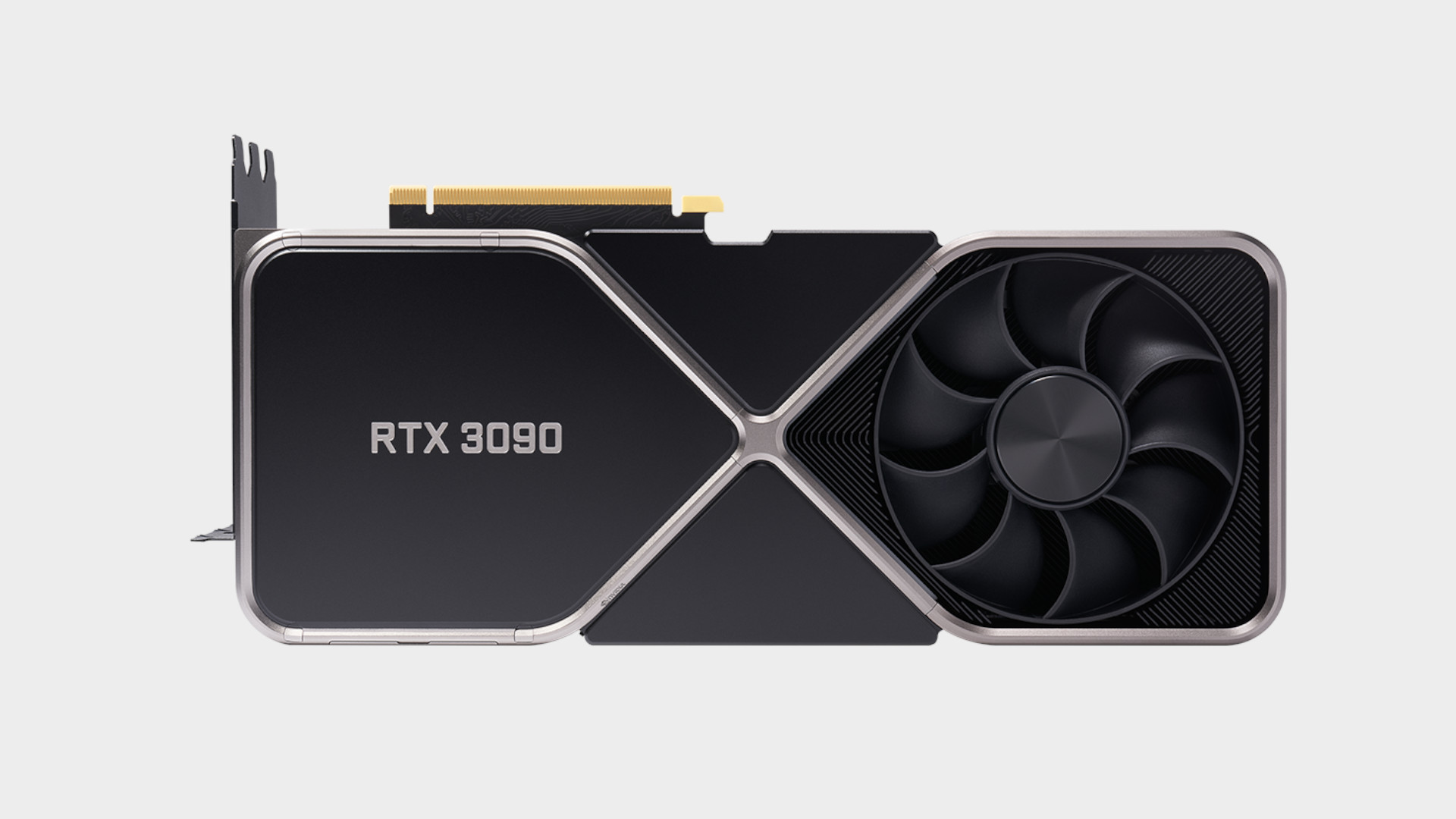
Of course, better components means better performance straight out of the box, but gaming PCs can also draw the best out of this tech as well. With larger power supplies and more sophisticated cooling tech, your PC will run high-end specs much better when in desktop format as well.
Still, gaming laptops are certainly catching up, with the best Alienware laptops offering incredibly efficient systems that can close the gap between a high-end laptop and a mid-range PC considerably.
Plus, performance is only going to factor into your gaming laptop vs desktop decision if you're shopping right at the top end of the price range. Otherwise, at the mid-range and entry level brackets, there's going to be less of a noticeable difference aside from cooling.
- Winner: Desktop
Customization
Of course, if you're looking for a long-term investment (and considering some of the more high-end price tags, we'd hope you are), gaming desktops do carry one major benefit over laptops - upgradeability and customization. Very few gaming laptops ship with the ability to swap out components, and those that do certainly charge you for the luxury. Some models will allow you to upgrade to the best RAM for gaming or swap out for one of the best SSDs here and there, but this is still a relative rarity.
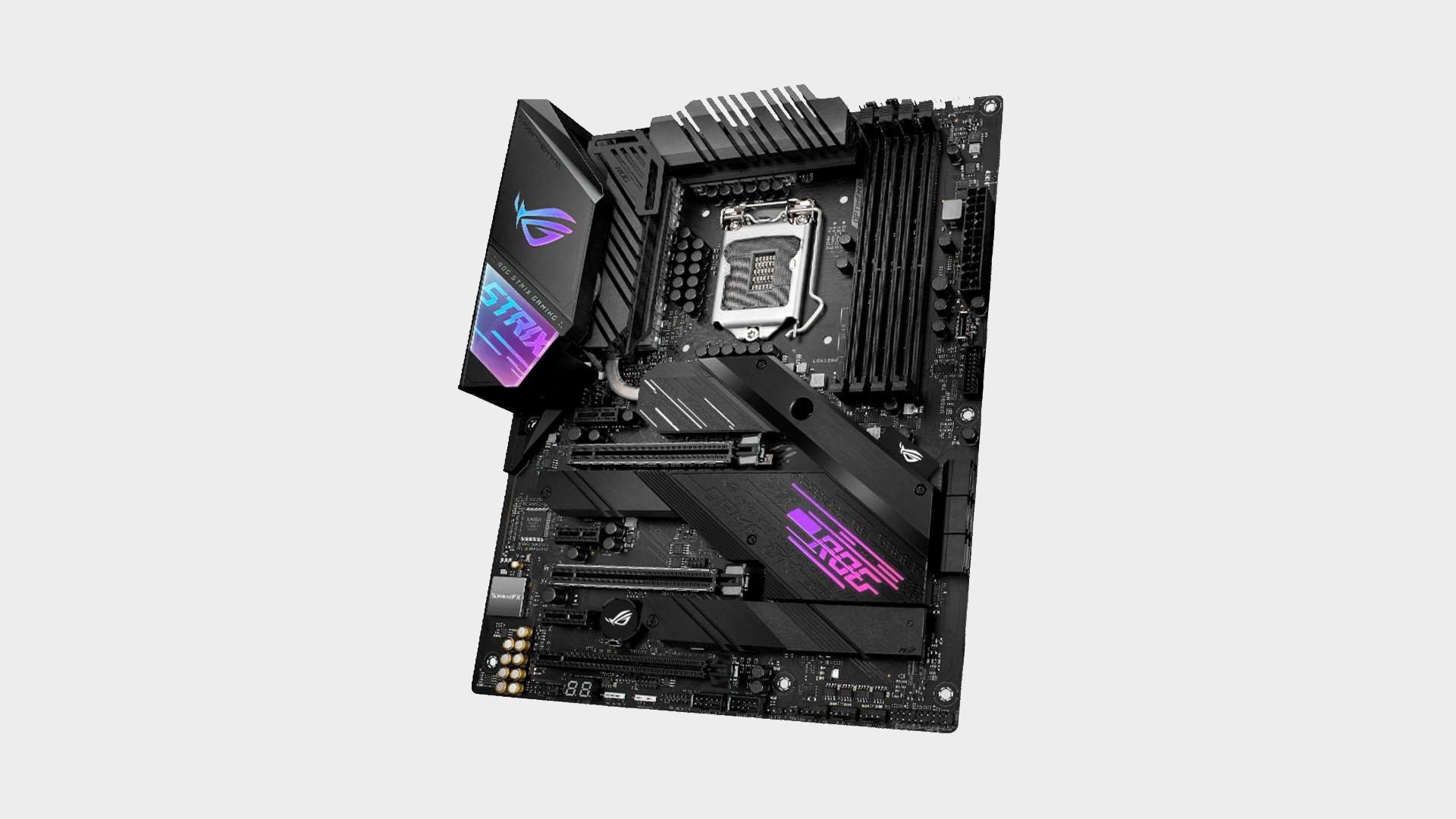
By contrast, many gaming PCs are built to be upgraded. You're getting the freedom to swap parts in and out to ensure your rig is running the latest components, making for a much better long-term solution. Not only that, but you'll also be able to customize cooling and RGB features in your tower as well.
This is a feature that gaming laptops simply can't compete with. With their CPUs and GPUs hard-fixed to the motherboard, you're buying a rig that will only run at peak performance for so long.
- Winner: Desktop
Availability
All this talk about upgrading and high-end components does need to come with the availability caveat, though. The best graphics cards are incredibly difficult to find right now, especially at MSRP. RTX 3080 stock, for example, is currently sitting at well over $1,000, and RTX 3070 stock is nudging that price point right now as well. This is where pre-built gaming desktops take a serious hit - it's just not justifiable to spend this kind of cash on core components when pre-built gaming desktops and laptops offer the same performance for a fraction of the cost.
Both pre-built gaming desktops and laptops can offer these hard-to-find GPUs for far better prices, because they're not facing a scalper market. Not only that, but you'll regularly see discounts in RTX 3070 laptop deals and RTX 3080 laptop deals that can still offer high-end performance at a particularly competitive rate.
- Winner: Tie (pre-built desktops and laptops)
Gaming laptop vs desktop: which should you buy?
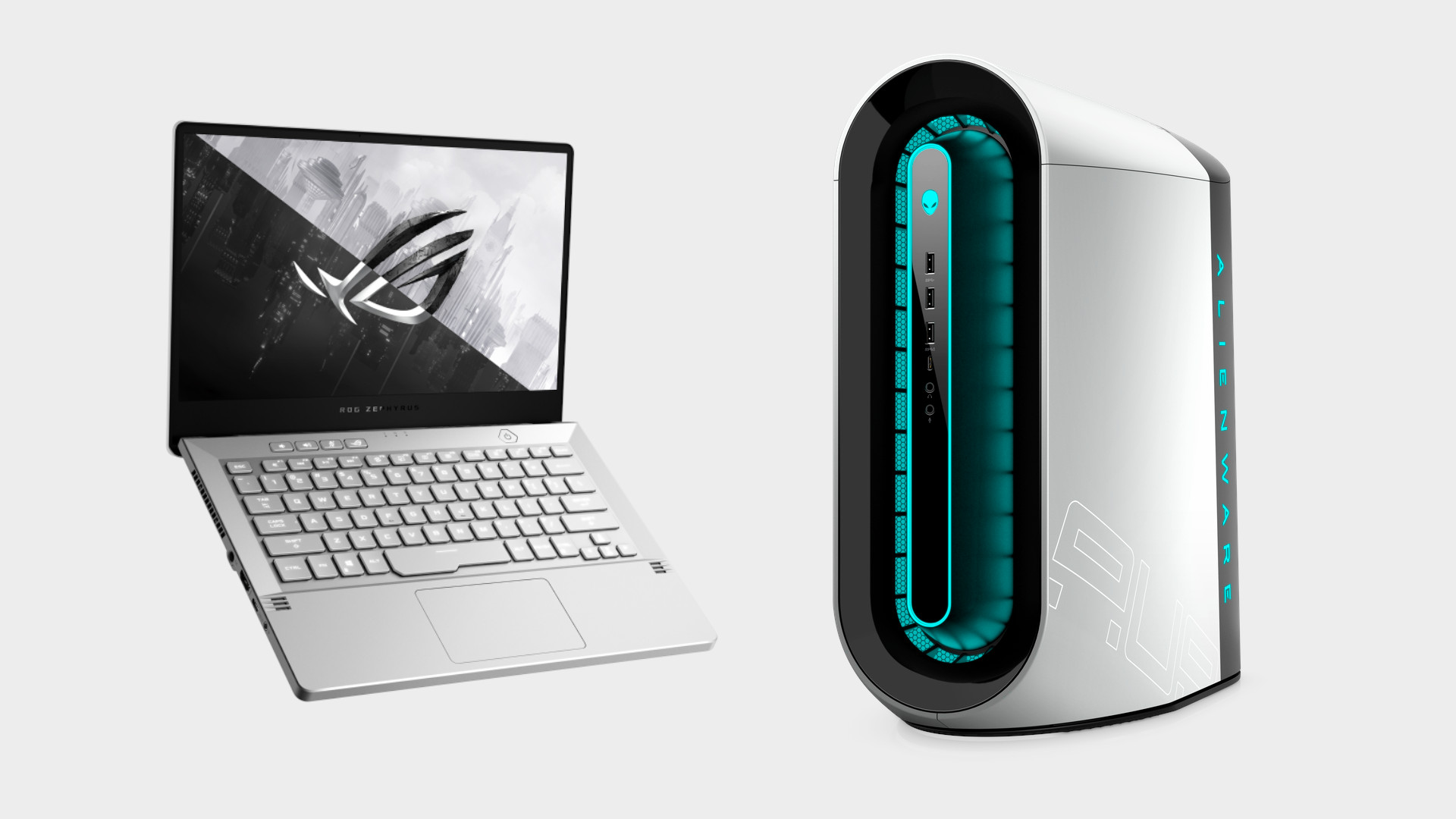
All in all, your decision between a gaming laptop and a gaming desktop will come down to how you want to use your machine. If you already have a setup ready and waiting for a tower PC, for example, it makes sense to save some cash and grab a pre-built desktop. However, if you're on the move regularly and don't mind missing out on the top end of the market, a gaming laptop is going to fit much better into your everyday use. You'll find a quick breakdown of the gaming laptop vs desktop market below.
Buy a gaming laptop if you:
Need a portable machine
Don't need top of the range components
Also need an everyday work machine
Buy a gaming desktop if you:
Value the option to upgrade further down the line
Need the top-end of the component range
Don't mind being tethered to your desk
For more of the best rigs, we'd recommend checking out the best Alienware PCs and the best Razer laptops. Or, for discounts on entry level models, check out the latest RTX 3050 laptop deals and RTX 3060 laptop deals.

Managing Editor of Hardware at GamesRadar+, I originally landed in hardware at our sister site TechRadar before moving over to GamesRadar. In between, I've written for Tom’s Guide, Wireframe, The Indie Game Website and That Video Game Blog, covering everything from the PS5 launch to the Apple Pencil. Now, i'm focused on Nintendo Switch, gaming laptops (and the keyboards, headsets and mice that come with them), PS5, and trying to find the perfect projector.


